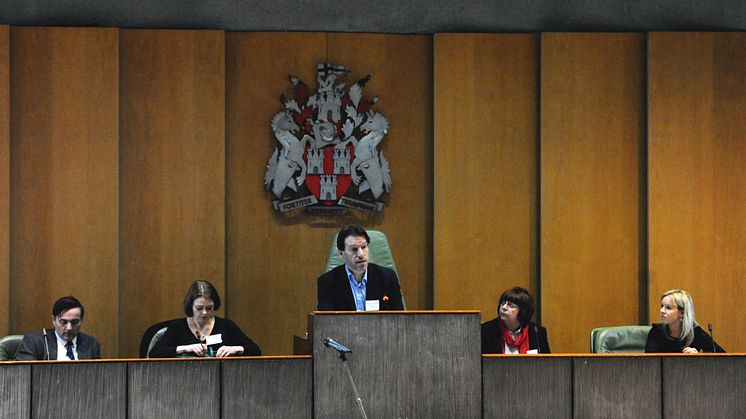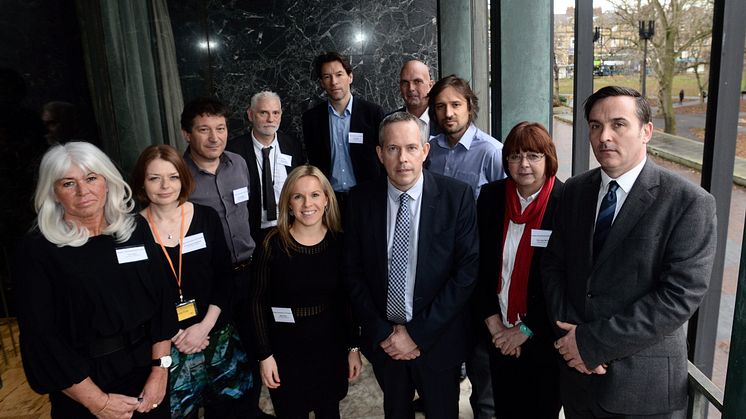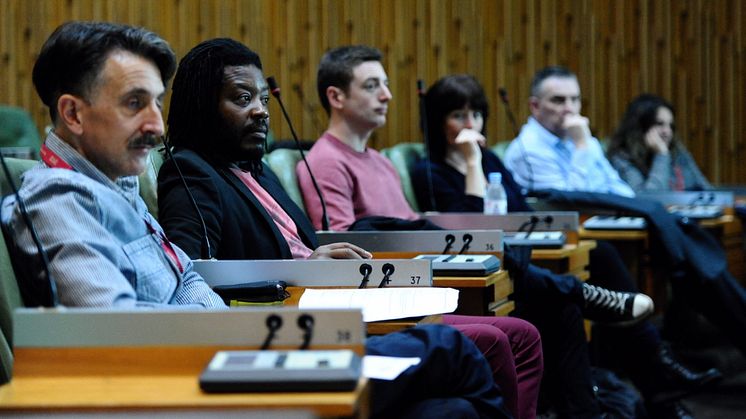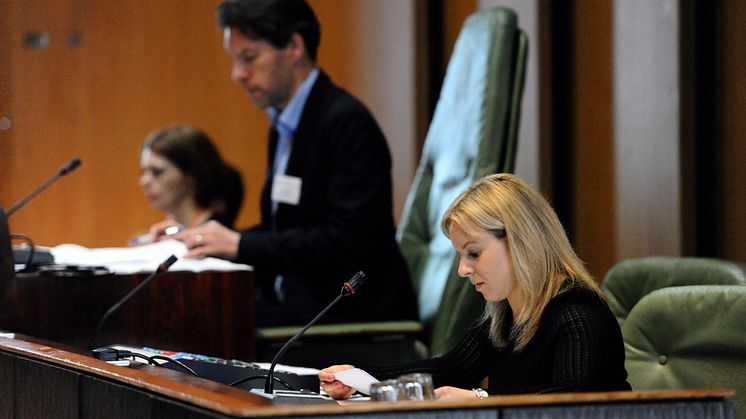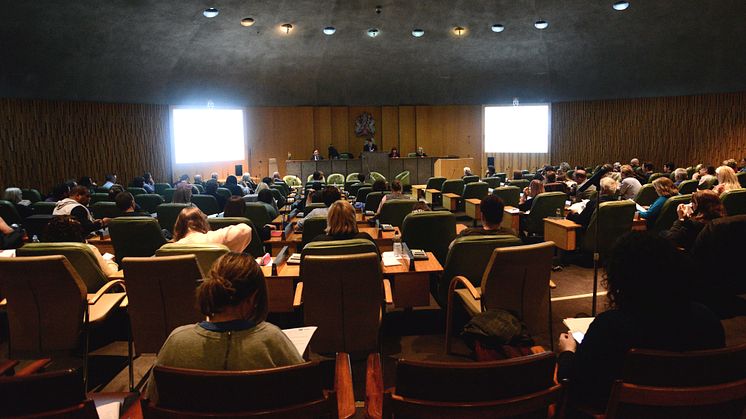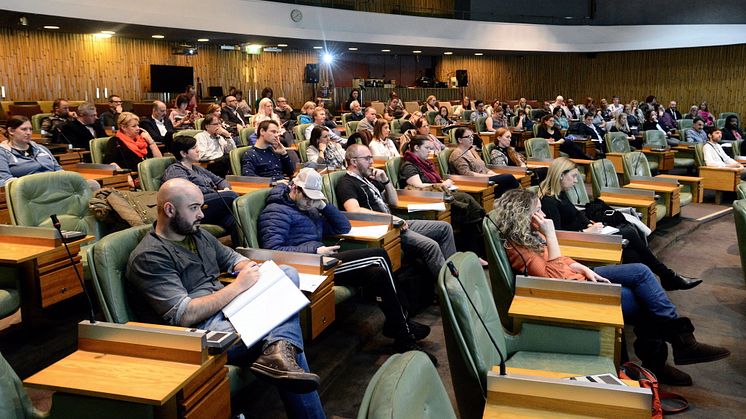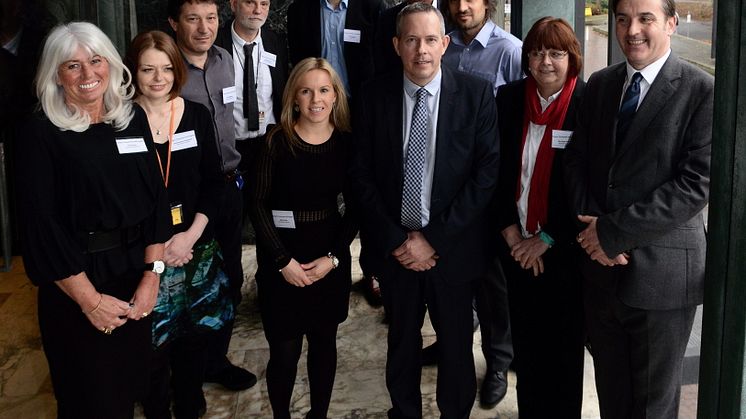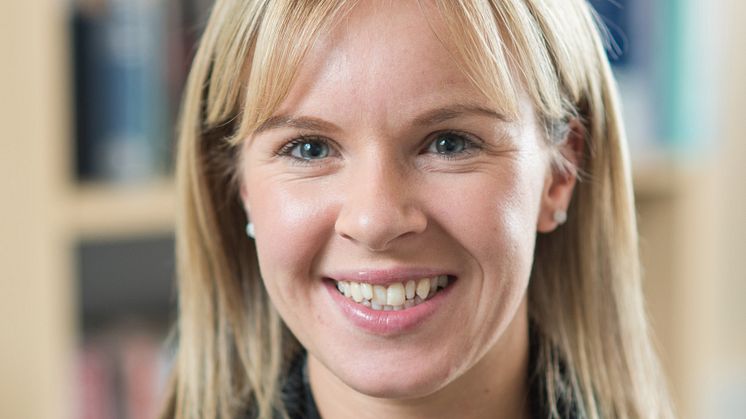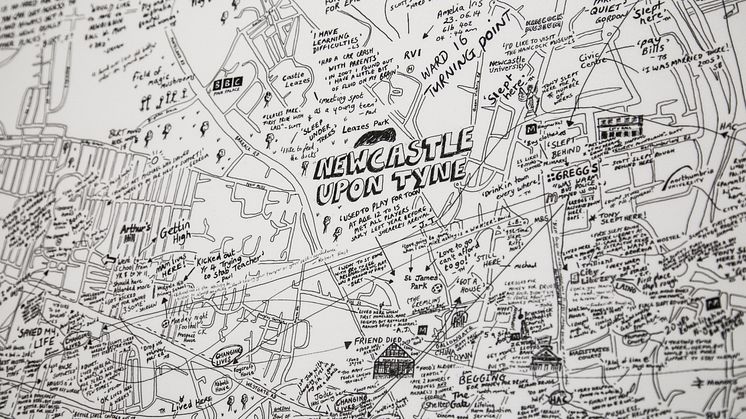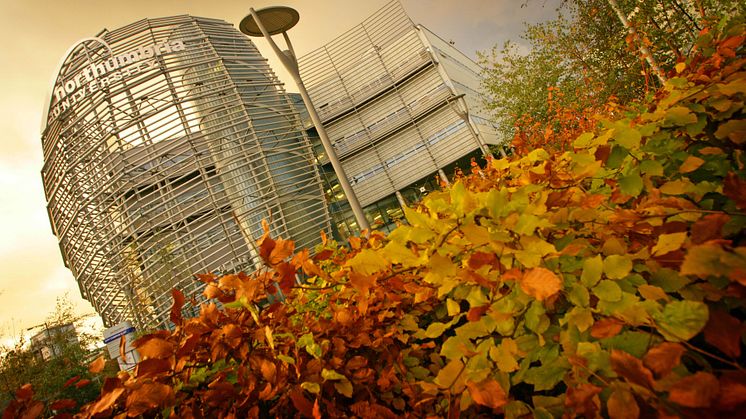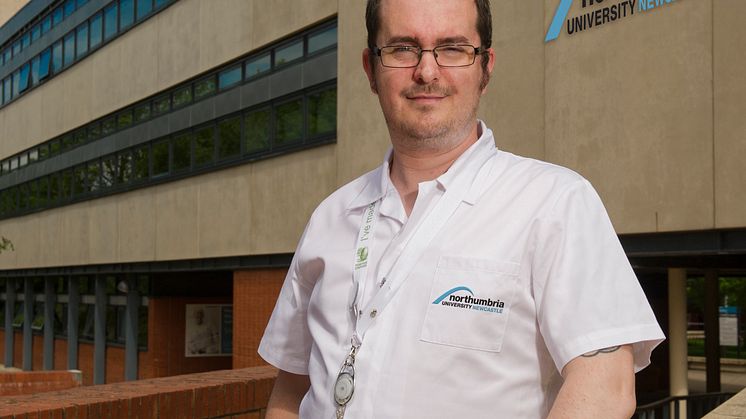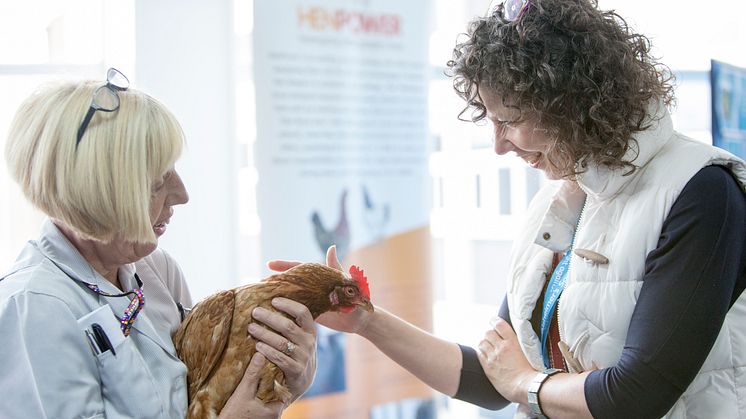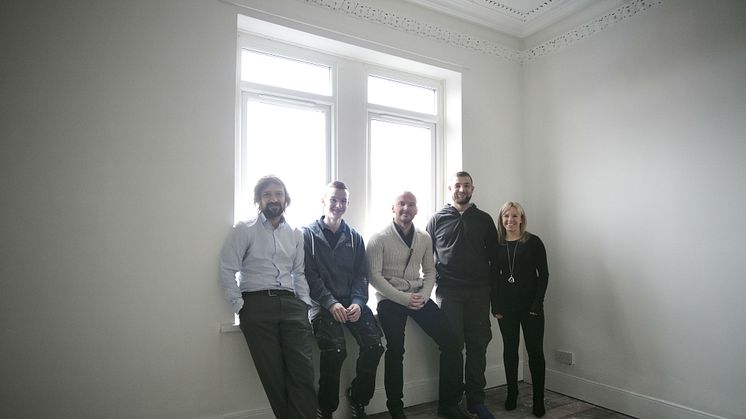
Press release -
Pioneering Northumbria researchers take on People, Pavements and Property
Led by Adele Irving and Oliver Moss, People, Pavements and Property aims to increase public understanding of, and engagement with, the structural and individual causes of homelessness.
The project, which combines the renovation and restoration of two empty properties in Arthur’s Hill and Byker, with artists’ residencies, will be launched at a one-day symposium at Newcastle Civic Centre featuring contributions from Patrick Butler from The Guardian, Campbell Robb from Shelter, and leading academic Professor Suzanne Fitzpatrick.

Emerging from a collaboration between the University, Newcastle City Council, Home Group, Shelter, Byker Community Trust, Changing Lives, the North East Homeless Think Tank and Bells Group North East, the project comes at an important moment in the history of the homelessness sector – the 50th anniversary of Cathy Come Home, the BBC television play credited with placing homelessness and housing insecurity on the political agenda.
Adele said: “Despite significant progress being made in terms of understanding and responding to homelessness over the past 50 years, it remains a significant and growing social problem. Public understanding of the issue is potentially critical in terms of shaping and influencing policy and practice responses, but investigation of this suggests widespread misunderstanding of the causes and effects of homelessness. People, Pavements and Property is thus an ambitious, public awareness-raising project.
‘’The one-day symposium is the culmination of months of hard work by project partners, people who have experienced homelessness, artists, tradesmen and members of the local community. The project has brought back into use two empty properties, which are now fit-for-purpose homes for people who may never have had this type of security before.
“We hope to have contributed in a small way to giving participants a greater sense of purpose, structure and routine, an opportunity to upskill and enhance their employment opportunities, a chance to broaden their social networks and to gain greater confidence and esteem. And, we hope to have demonstrated what is possible through goodwill, generosity and collective effort.
“Through the project, we also commissioned three artists to work with people with current and former experiences of homelessness and the housed public, to develop a series of artistic insights into the interconnected issues of housing and homelessness. The artworks produced and property renovations will be exhibited widely across the North East over the coming months."
This project provides an opportunity to consider why homelessness is still a major social issue 50 years on from the first showing of Cathy Come Home. Despite a large charitable sector dedicated to tackling homelessness and the UK having progressive homelessness legislation, levels of homelessness have increased since 2010.
Adele added: “In this context, the project considers fundamental issues regarding housing, homelessness and inequality, including questions such as: Why homelessness has increased over the past 50 years? What best prevents homelessness and when should that start? How can the public help to end homelessness? Can well intentioned help ever be harmful? What are the tensions between public and ‘expert’ understandings of homelessness? And, what is the role of evidence and research in ending homelessness?”
Councillor Joyce Streather, of Newcastle City Council, said: “It is important we continue to explore people’s perceptions of homelessness across the city and we are pleased to be working alongside Northumbria University on this unique project. The better we understand the causes of homelessness the better we can prevent crises occurring and this project has helped us to consider the relationship between perceptions and evidence.
“The People, Pavements and Property project not only challenges our views on homelessness, it has also provided homeless people from across the city with some brilliant opportunities to refurbish unused properties that are now ready for use.

“We would encourage and support anyone who is homeless or concerned about becoming homeless to contact the council or one of the voluntary sector organisations in the city to receive help and support. More information is available here http://www.newcastle.gov.uk/housing/housing-advice-and-homelessness or you can ring 0191 277 1711.
“I look forward to continuing the partnership with Northumbria and watching the project develop.”
People, Pavements and Property follows a range of ongoing work to challenge and inform public perceptions of homelessness and related issues by Northumbria academics. In 2015, Adele and Oliver launched a first of its kind ‘sound-walk’, built around interactive signage installed in Newcastle city centre.
Northumbria offers a range of courses in Social Sciences. For more information about studying at Northumbria go to: www.northumbria.ac.uk or sign up for one of our upcoming Open Days.
Topics
Categories
Northumbria is a research-rich, business-focused, professional university with a global reputation for academic excellence. To find out more about our courses go to www.northumbria.ac.uk
If you have a media enquiry please contact our Media and Communications team at media.communications@northumbria.ac.uk or call 0191 227 4571.







